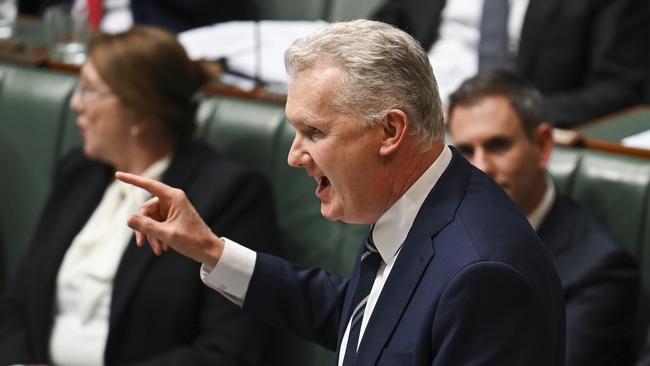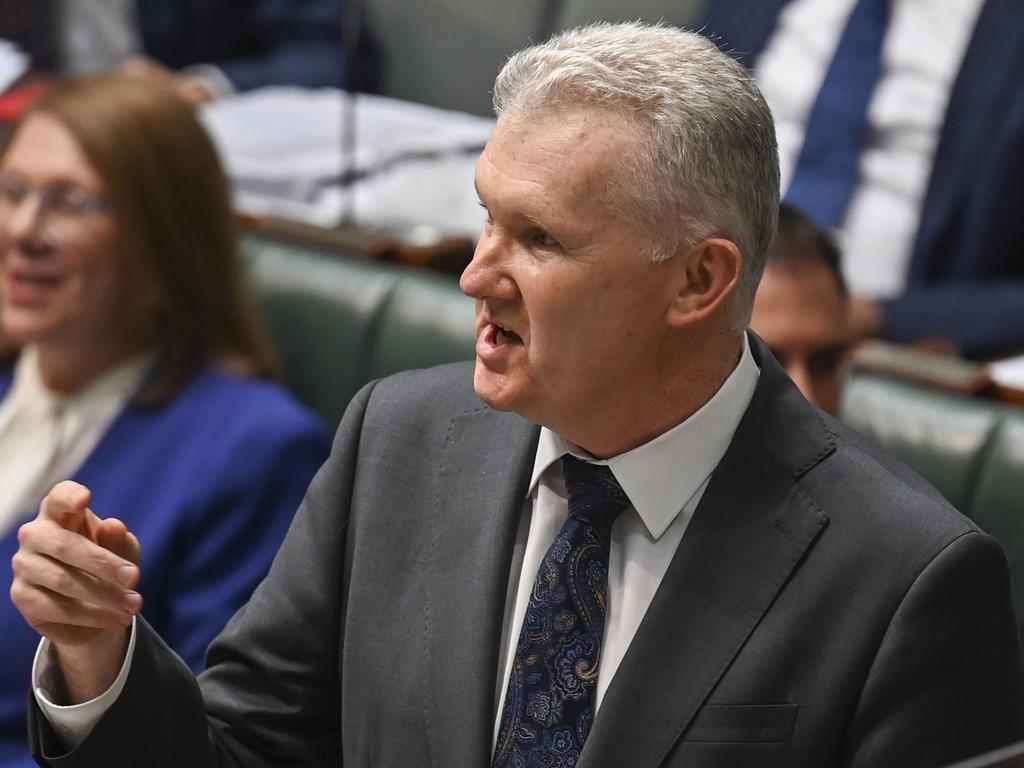Business uproar at changes on casuals
Employers warn the changes will restrict their ability to engage casuals to work regular and predictable hours.

Business has attacked the Albanese government’s plans to allow casual workers to seek permanency after just six months in a job, claiming the changes will cause legal uncertainty and restrict their ability to engage casuals to work regular and predictable hours.
Employers accused the government of implementing the union movement’s agenda while Australian Industry Group chief executive Innes Willox said companies would be alarmed if the changes resulted in “radical” restrictions on their existing employment practices.
But unions said the proposed changes unveiled by Workplace Relations Minister Tony Burke would give workers access to better rights and entitlements, while offering flexibility to employers and employees.
Currently, casual workers have to be in a job for 12 months before they can seek conversion.
Mr Burke said the government wanted workers to be able to apply for permanency every six months if they believed they were working permanent hours.
It also wants a new practical definition of casual to effectively reflect the actual hours undertaken by a worker rather than the position at the start of a person’s employment.
Mr Burke said “I don‘t want to skate over it: the change we’re proposing is a shift in improving the rights of workers”.
“At the moment, whether you are a casual or a permanent is entirely in the hands of the employer even if you are effectively working permanent hours and would like to switch,” he said. “The situation now will be if you’d like to switch and you’re working permanent hours, the pathway will be open for you.”
Mr Willox said defining casual employment “in a way that prevents or discourages an employer from offering a casual regular and predictable hours would be a mistake that would damage the economy and hurt both businesses and employees”.

“If we make it harder for employers to offer regular work to casual employees this will just result in less security, less certainty and less opportunities for workers. It won’t help anyone if an employer is forced to convert a casual employee to a permanent job if one doesn’t genuinely exist. The real risk is that employees will be laid off down the track.”
Australian Chamber of Commerce and Industry chief executive Andrew McKellar accused the government of trying to unpick existing legal certainty, and running the agenda of the Australian Council of Trade Unions.
ACTU secretary Sally McManus said the changes would mean “people can actually build a life, get a home loan, get a rental property, all the basics that people need especially when they have got families”.
Mr Willox said “what little we know of the government’s plans for casuals appears to be a solution to a problem that doesn’t exist. Casual employees working regular hours already have the capacity to request transition to permanent employment under the ‘casual conversion provisions’ in the Fair Work Act. Indeed, most casuals have never had stronger access to permanent employment than they do now”.
Ms McManus said the business position was contradictory, as it was either “big and terrible” or it would not affect anyone. She said employers wanted no change because it kept all the power with them to decide.
“If you are working regular hours, you deserve the rights that go with it,” she told the ABC.
“If we don’t make this change we’ll just have a whole generation of workers who won’t even know what it’s like to have a paid annual leave day.”
Mr Burke said there might be some jobs employers now make available as permanent, “which they wouldn’t have otherwise – that’s a good thing”.
“I don’t see in a million years how this can add costs to business, because instead of paying the loading, you pay leave,” he said.
“You never pay both, you pay one or the other, and they’re calculated to offset each other.
“The difference for employers is this: if they have workers who really need secure work and they’re not offering it, under this process, by giving people secure jobs, you get a more loyal workforce, you get a workforce that appreciates the security … given to them, and that can only be good for business and productivity.”
Mr Burke said a lot of the business groups would prefer the current definition of casual. “I get that the current definition gives all the power to the employer. If you put in a contract at the start that someone’s a casual, that’s the end of the story,” he said. “I want to go back to what the definition always was before, a couple of years ago, and that’s a practical definition where effectively you ask what’s really going on.
“If you are working a regular shift that doesn‘t change and you and the employer know that’s the shift, and you would like to say ‘I’d rather switch out the loading and get leave instead so I know my hours are locked in and so that if a child’s sick, I can take a day off without wondering whether or not I’ll be able to pay the bills that week’ … that should be available for Australian workers.”








To join the conversation, please log in. Don't have an account? Register
Join the conversation, you are commenting as Logout